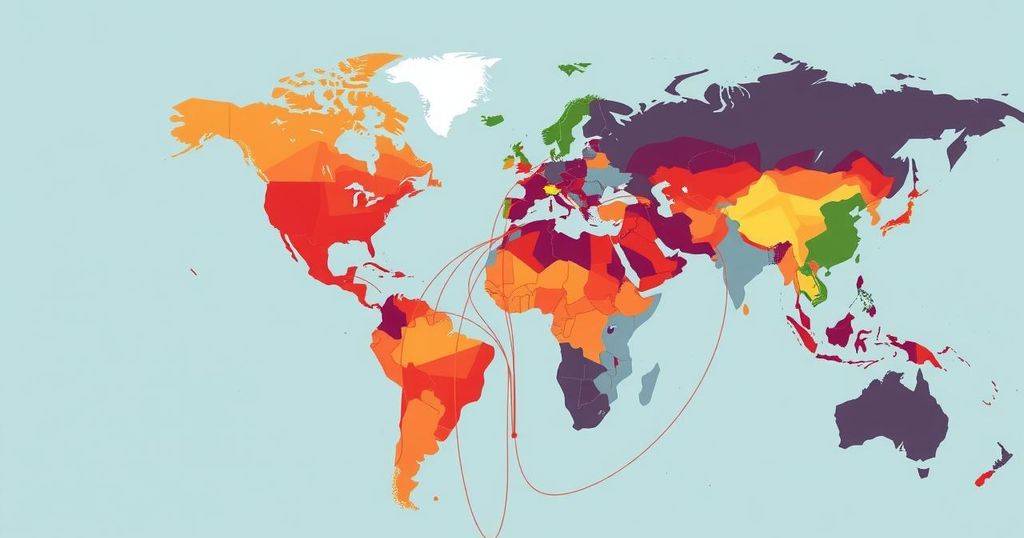Research funded by the EU highlights the impact of climate change on migration and social transformation in Ghana. Conducted by 18 scholars under the REACH-STR project, the studies focus on gender, migration, and resilience strategies in Northern Ghana. Key findings stress the need for climate-smart agriculture, gender-inclusive policies, and an emphasis on awareness of migration policies. The project aims to equip young professionals for future sustainability efforts.
Recent research reveals the significant effects of climate change on social transformation and migration patterns in Ghana. Conducted under the European Union-funded Resilience Against Climate Change-Social Transformation Research and Policy Advocacy (REACH-STR) project, the studies aim to guide policymakers towards sustainable development pathways. The initiative involved 18 scholars who undertook research on gender, migration, climate resilience, and policy action in various communities, particularly in the Savannah and Upper West Regions.
The researchers observed that climate change is a pressing and tangible issue for many households in Northern Ghana, leading to various cultural, political, and economic transformations. Northwest Ghana is currently experiencing rapid changes, exacerbating vulnerabilities and influencing community adaptation strategies. The scholars emphasize the need for practical solutions like climate-smart agriculture, enhanced institutional capacity, and gender-inclusive climate policies to address these challenges.
Migration emerged as a vital adaptation strategy for both genders in response to climate change impacts. Raqeebah Hisham, one of the student researchers, stated that migration is increasingly prevalent in both peri-urban and rural areas. However, she noted that the dynamics of migration differ, with men migrating for longer durations than women, who often return quickly to care for their children.
Moreover, men left at home are beginning to undertake chores typically associated with women due to increased female migration. Women are also assuming financial responsibility for households traditionally managed by men as the latter migrate. Hisham pointed out the lack of awareness about existing migration policies among local communities, urging stakeholders to promote these policies effectively, particularly emphasizing the gender-sensitive aspects.
The graduation ceremony for the 18 scholars under this project celebrated their contributions with the theme “Building Capacity of the Next Generation for Climate Resilient Development.” The event highlighted the vital insights gained regarding the interplay between social transformation and climate vulnerabilities in Northwestern Ghana. Mr. Massimo Mina from the EU underscored the EU’s commitment to supporting such initiatives that empower young professionals and promote sustainable development, noting that climate resilience involves practical actions beyond mere policy formulation.
Dr. Birhanu Zemadim from IWMI Ghana expressed gratitude for the project’s support and acknowledged its potential to address pressing climate-related challenges in Ghana. He emphasized that the graduates’ research could significantly impact policy interventions, ensuring they are informed by the social realities and challenges faced by communities.
The REACH-STR project has illuminated the critical intersection between climate change and social dynamics in Ghana. The findings underscore the necessity for informed policy advocacy and actionable strategies to build climate resilience. As the initiative progresses, it represents a valuable opportunity to foster sustainable development while equipping the next generation of professionals with the tools to address these vital challenges.
Original Source: www.ghanabusinessnews.com




